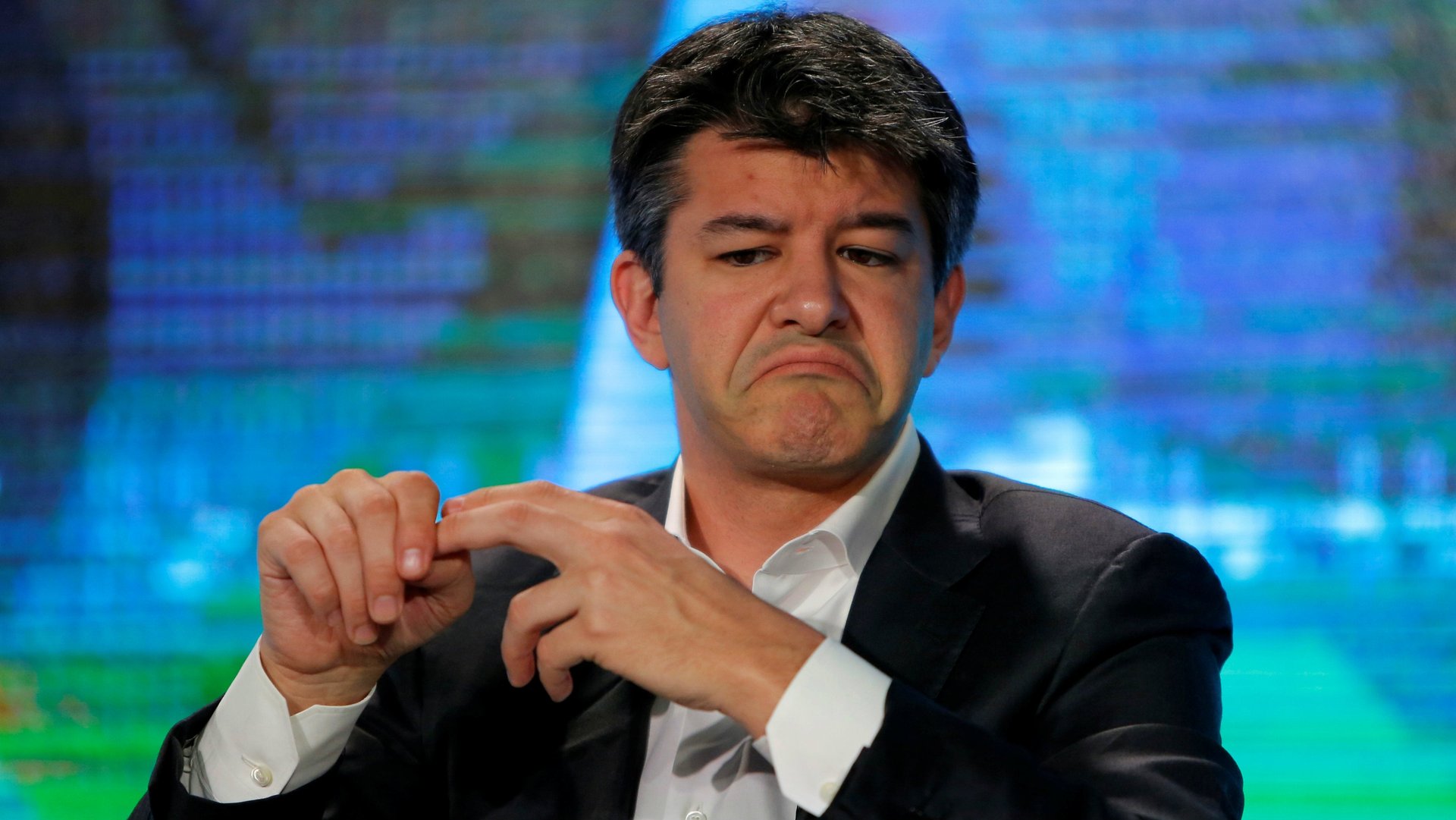Uber’s merger with Didi shows just how hard it is for a foreign company to compete in China
When Uber CEO Travis Kalanick announced today he would merge Uber’s China division with local competitor Didi Chuxing, his company joined the ranks of American tech companies to face unceremonious ends in China. Google and eBay bowed out. Facebook and Twitter got shut out. Amazon continues to linger in irrelevance.


When Uber CEO Travis Kalanick announced today he would merge Uber’s China division with local competitor Didi Chuxing, his company joined the ranks of American tech companies to face unceremonious ends in China. Google and eBay bowed out. Facebook and Twitter got shut out. Amazon continues to linger in irrelevance.
So it’s not surprising to see Uber lose its fight against Didi in China. What’s notable is that it fought a much better fight than its American counterparts, and it still lost so swiftly.
When Uber entered China, it closely followed the playbook it used in America of acting first, and asking for forgiveness later. Almost immediately after arriving in China in 2014 it launched “People’s Uber,” a service modeled after UberX in the US that let ordinary car owners (or renters) drive passengers for cash. Grizzled China hands expected state authorities to quickly crack down on Uber, predicting that a foreign company would never be allowed to compete with the state-affiliated taxi industry.
But that never happened. Despite the occasional police raid, authorities did nothing to stop the company from operating. Consumers, meanwhile, flocked to it—so much so that its competitors ended up merging and copying its peer-to-peer model.
Charging headfirst may have been Uber’s wisest decision in China. Asking for forgiveness later has long been a key tactic for China’s most successful internet companies. Alipay, for example, Alibaba’s answer to Paypal, was once widely expected to face a government shutdown as it slowly transformed into a consumer bank. It’s now held up as one of the country’s shining examples of innovation.
Uber lured in a number of Chinese investors for its China division, including Baidu, China’s most popular search engine, as well as state-affiliated companies like SAIC Motor Corporation and Citic Securities. This helped ensure that any loss for Uber would amount to a loss for China.
It also hired an entirely local staff and gave them autonomy over how each office would run. This opened the door to labor abuses, but also better government relations. When Uber drivers protested in China (as they do everywhere), Uber issued statements urging calm, rather than rallying its supporters as it does in the US. While some might question the ethical implications of appeasing the CCP’s distaste for public demonstration, Uber’s conciliatory stance toward the government—which runs counter to its approach in the US—undoubtedly helped prevent a swift crackdown.
It’s easy to imagine a number of scenarios that could have spelled the a much harsher end for Uber. The government could have issued rules or laws stating that no foreign company could operate an internet ride-hailing business. Instead, it legalized ride-hailing. Didi and its investors could have let Uber continue to burn $1 billion a year, until it died or sold to weaker Chinese competitors like LeEco or Shenzhou Zhuanche.
Even though Uber’s acquisition doesn’t quite count as a victory, it’s far from the failure that its American predecessors suffered.
Google folded its consumer-facing business in China in 2010, after years of political pressures and management issues. Politically, the company’s ambivalence towards censoring its search results (felt at the highest levels of the company) led to soured relations with the government. Management-wise, the company’s reluctance to invest in TV ads and a call center sales team helped its rival Baidu have more visibility among both consumers and search ad customers. Years later, it’s knocking on the door to get back in to China.
eBay, meanwhile, exited China in 2006 after a years-long battle against Alibaba’s Taobao. The company lost the competition by relying too much on its American management team to run its Chinese operations, and by refusing to let vendors list products free of charge. It left the market when it sold to Tom Online, a middling online portal with no e-commerce experience.
Amazon continues to muddle along. After acquiring online bookstore Joyo.com in 2004, the company completely failed to catch up to Alibaba’s Taobao and Tmall—so much so that it went on to open up virtual stores on those sites.
By those standards, Uber’s merger with Didi looks pretty good. It walks away with a 20% stake in a company valued at $35 billion. It’s bruised, but not broken.
That said, if the world’s highest-valued internet company can only pull off “not awful” in China, other foreign internet companies will surely fare much worse.